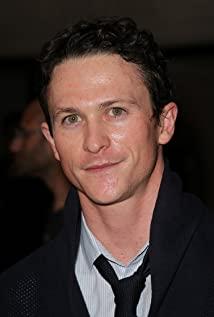She was very calm and prepared to commit suicide. The process is like completing some kind of ritual: playing a CD, placing all the bottles and cans and pills in an unusually neat position, and then taking them one by one... These behaviors may imply that she is a perfectionist, and many are perfect. Activists tend to fall into long-term depression after their goals are difficult to achieve. The room layout is also cold, suggesting Veronika's depression. After taking the medicine, she wrote an email(?), indicating that this world is crazy and unreal, so it is better to commit suicide to understand its essence.
However, she was eventually rescued and sent to the Villette Mental Health Center. Here, Doctor Blake told her that she had attempted suicide and caused irreversible damage to the body, and she could leave the world at any time. She insisted on not letting the doctor tell her parents the truth. The reference to the image of parents again here also implies that Veronika's relationship with her parents is unusual. From here on, the sound effects of the movie frequently used gossip's voice as the background, which should have been heard by Veronika, which gave her a lot of pressure to gossip.
Edward is the other protagonist in the film. He suffered from hysteria (aphasia?) for many years because of a car accident with his girlfriend. His girlfriend was killed and he was lucky to survive. Most of the viewer's understanding of him comes from the description of Veronika's roommate Claire and Ed's notebook of his inner state. He hides the notebook in an unknown cabinet, just like his own heart. The crazy smearing and messy lines in the notebook are some kind of expression of Ed's heart. Ed has followed Veronika secretly from the beginning. What's interesting is that when Ed is paying attention to her silently, the elderly Mari, a Godmather-like character in Villatte, has been paying attention to Ed.
At first, Veronika had difficulty accepting the fact that she was detained in a mental hospital and was terminally ill, refused to cooperate with doctors, did not want to meet with her parents, and refused to contact other patients. Dr. Blake arranged for a meeting between Veronika and his parents. From a psychoanalytic point of view, it might be to arouse empathy. The meeting took place in an awkward atmosphere. Veronika's parents were Slovenian American immigrants. With a heavy accent, they uneasily described how good V was and how good she played the piano as a child. Veronika denied that she could play the piano. Piano seems to mean pain in her life forcing her to avoid it. Veronika hugged her parents stiffly, never telling them that she would die at any time.
This meeting gave Veronika a great shock, she thought it was a farewell forever. Unbearable to endure the coming of unknown death and the rumors in the nursing home, she tried to commit suicide many times without success. The empathy did not happen, finally when it happens, it does not mainly happen between psycho-analysist and patient, but happens between patient (Veronika) and patient (Ed), patient with piano.
Claire (maybe a patient with obsessive-compulsive disorder, the film does not explain her condition, but emphasizes that she is always counting) She speaks freely when she lives with Veronika, and has become a guide in Veronika's identifying ego process. Since Veronika slapped a patient who ridiculed her, her suppressed emotions began to vent, and she gradually admitted that she was "abnormal". One of the manifestations was that she began to contact patients, mainly Ed.
One of the typical empathy manifestations is a conversation with Dr. Blake after V suicide failed:
Veronika: I hate you.
Doc. Blake: Really? Tell me about it. (Guide the development of empathy)
V: Fine, I hate your stupid desk, and I hate your ugly ties, and I hate your ridiculous socks, and I hate everyone locks up in this place. And I hate my parents for spending their last penny to keep me in the zoo , God they should ever for one moment live in their lives. Is that what they came here for? To be the fucking same as everybody else? And I hate the griks in my office; the money they earn makes them the shit. And more than anything, I hate the zombies on the subway who have forgotten all their dreams or the fact that they ever had never begun one! The pain of having a piano dream and finally giving up for a better paying job)
B: I have some terrifying news for you.
V: Could be more terrifying than this?
B:.? You sounds like you might be feeling better ... answer me honestly, please Does it feel better to feel better ( prompt empathy mean improvement of their symptoms occur)
connected to Veronika violently reflect after, Veronika very emotional Stable, Blake prompts: You almost laugh, another sign of improvement. Veronika immediately took Go to hell! After finishing the conversation, she walked to the piano room in the dark, seeming to continue to release her anger on the piano. At first, she slapped the keys frantically to release the noise; then finally turned into a beautiful melody. It can be said that this piano is an important part of Veronika's self-recovery. It connects Veronika's depressed childhood and broken present, and partly plays the role of a therapist.
The beautiful piano sound brought her peace, but it made waves in Ed's heart. The two gingerly showed love to each other, while gradually repairing themselves in the process: Veronika first refused Ed's invitation (as if to play table tennis together), and then there was a scene that I couldn't explain with psychoanalytic theory. : Veronika finished a song and invited Ed to have sex with her. After Ed refused, she masturbated in front of Ed. The physiological reaction? Ed seems to have been suppressing his sexual needs after the death of his ex-girlfriend; or as Dr. Blake said, through Veronika's love, let Ed realize that his life is not completely meaningless? ). The piano here has become a platform for communication between the two. Ed can't speak, and the melody flowing from the piano can convey emotions. It can be said that Veronika is both a patient and a therapist in the film. She successfully derives Ed’s repressed emotions and releases it on herself, until the two parties end their transference and counter-transference (or is this impossible to end?) truly fall in love with each other, complete the treatment of Ed, that is, restore her personal society Features.
This absurd scene was mistaken by Mari outside the door that the two had a sexual relationship, which became the direct reason why she left Villette. Mari has a special feeling for Ed, but it is too vague in the film that I can't define it as love or simply caring. (In the film, leaving Villette symbolizes the disappearance of the disease and the patient's return to a normal life, and the sound of the train also symbolizes this meaning).
Before this, Dr. Blake and Mari mentioned counter-transference, which is counter-transference, but here seems to be a crappy application to describe Ed’s feelings for V. Both parties are patients and it is difficult to distinguish who they are. How can you counter-transference if you are emotional first? The third conversation between the two was also in the last conversation of Villatte. Mari said: It's time for me to get away from you... I mean, from here. This is obviously an example of slippage and correction. The first sentence is what Mori really wants to say, to escape from some kind of empathy that happened between Dr. Blake and her; the second sentence means ending the doctor-patient relationship. The relationship between the two is normalized at the end of the film. Hold here for the time being.
As the condition improves, the background music of the film is changed to a brisk tune, and the noisy sound of the gossip of the previous patient decreases, which is also a certain response to the healing effect of the piano.
Veronika began to explore the entire Villatte curiously, checking unfamiliar rooms, peeping at other people's treatments, etc. This means that she has accepted her status as "mentally ill". In a group swim before the meditation treatment, Veronika observed the people underwater, as if she could see the infinite vitality from it, while she was always sinking deeper and deeper in the water in the near-death experience. The water in the film has the meaning of rebirth. The swimming pool of Villatte, Ed and V watching the sunrise on the beach at the end of the film all reflect the meaning of rebirth, which is easy to understand in the Christian culture.
The day after Ed's meeting with Veronika's piano department, she had a second conversation with Dr. Blake, this time in a calm and friendly atmosphere.
V: I need your help. (Acknowledge your identity as a patient) …… I am feeling much better (From denying your own good to acknowledging your own improvement)…I want to know how much time I had left…… I need to be conscious of every moment (desire for life)……I wanna leave here (that is, in the end stage of the three stages of psychoanalysis, the patient proposes to end the doctor-patient relationship)……Look if I have even a little time left, there is so much I can do. I want to go to the beach, I want to see the ocean and I want to feel the sand, I want a huge taco from my favorite taco stand, I want to walk into a Irish pub and I want to order a Guinness, I've never done that. I want to see my mum, I want to talk to her, really talk to her. It may imply that it has a long-term lack of effective communication with parents) ……Last night……there is so much about myself I don't know (curiosity and desire for life).
Blake didn't allow her to leave, and this time, she accepted it calmly. The waiting here is nothing but for Ed to get rid of his illness. Ed finally speaks under the stimulation of Mari’s departure: I need to leave Villette. The voice-over of Ed is expressing Ed’s psychological activities, not what Ed actually said.), the film specially arranges a series of montage shots here: one is the chaos caused by Ed suddenly speaking, and the other is Veronika reading Ed in the Ed ward. Explore Ed’s inner world in his notebook. Both indicate that Ed has opened his heart to others. In the end, Ed and V escaped from Villatte (Dr. Blake acquiesced to their departure) and started a normal life. The use of handheld cameras in the movie here is similar to street captures and ordinary home videos, which echoes the ending of their normal lives. .
There is a slight irony at the end of the film. Dr. Blake himself left Villatte and went to New York Central Park to find Mari. Is this a manifestation of the therapist’s counter-transference, or is it a metaphor that the entire film is also a process of self-acceptance and self-healing? Multiple interpretations are inconclusive.
The dialogue between Mari and V before the trip points to a common problem faced by modern people: I'm gonna die, where is my soul? Many people have lost themselves in the multiple identities that have been alienated in modern society, and they don’t know the meaning of their lives. Some people avoid this problem, or are not aware of it at all; some people think about this problem, and even others are schizophrenic, just like this group of patients in Villatte. Dr. Blake said: If everyone realizes their dreams, this place will be empty.
In the film, there are occasional scenes of patients entertaining themselves in public places, which reminds me of the various massacres in the movie "Adam Who Was Wake" Tortured and mentally disordered Jews, they are born and live in a desolate and crowded mental health center in Israel.
In addition, the only English subtitles that can be found on the Internet can be used as a small dictionary of English synonyms.
View more about Veronika Decides to Die reviews











